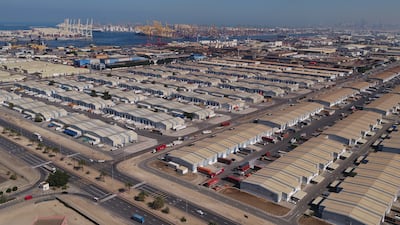The UAE has updated its corporate tax regulations affecting certain free zone companies.
The updates expand the scope of qualifying commodity trading to include industrial chemicals, associated by-products of qualifying commodities, and environmental commodities, the Ministry of Finance said on Wednesday.
The ministry repealed Ministerial Decision No. 265 of 2023, replacing it with Ministerial Decision No. 229 of 2025, which clarifies the scope of qualifying activities for corporate tax purposes in free zones.
The new decision clarifies the scope of the trading of qualifying commodities by removing the term “in raw form” and now allows the trading of metals, minerals, industrial chemicals, energy and agricultural commodities and associated by-products, provided that a quoted price for such commodities exists.
A quoted price refers to the price specified by a recognised commodity exchange market or a recognised price reporting agency specified by a decision issued by the minister.
The ministry also announced the decision No. 230 of 2025, which lists the recognised pricing agencies, to provide "certainty and clarity to taxpayers".
The ministry stressed that free zones play a key role in "driving the UAE’s economic growth, attracting investment and providing an enabling business environment".
The new decisions "reflect the importance of free zones and their role in the country’s economic diversification strategy, as well as the UAE’s commitment to providing a supportive business environment in alignment with international tax standards", it added.
However, further details about the new ruling are needed, especially for entities that paid their taxes but no longer need to, said David Daly, partner at Gulf Tax Accounting Group.
The UAE introduced the federal corporate tax with a standard statutory rate of 9 per cent starting from the financial year beginning on or after June 1, 2023.
It brought the income of companies exceeding Dh375,000 ($102,110) within the taxable bracket. Taxable profits below that level are subject to a levy of zero per cent.
Companies operating in free zones can also pay zero per cent tax on income from certain qualifying activities and transactions.
Qualifying activities previously included fund, wealth and investment management services, the manufacture and processing of goods or materials, reinsurance services, the holding of shares and other securities and the ownership, management and operation of ships.
Other qualifying activities included services provided by headquarters to related parties, Treasury and financing services provided to related parties, the financing and leasing of aircraft (including engines and rotable components), logistics services, as well as distributions in or from a designated zone that meet the relevant conditions and any ancillary activities related to these.
A qualifying company can benefit from zero per cent corporate tax rate on qualifying income provided it is incorporated, established or registered in a free zone. It can also benefit from a tax exemption on income earned from transactions with mainland UAE businesses or those in a foreign jurisdiction.




